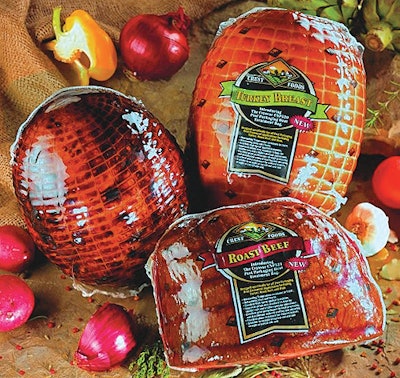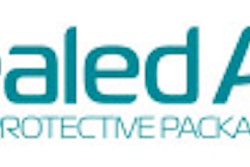The U.S. Department of Agriculture’s new interim rule on Listeria protection for ready-to-eat (RTE) meat and poultry products has a wide range of possible packaging implications.
The idea behind the rule is to use a regulatory prod to convince the majority of companies in the RTE industry to shift to a safer production environment. Typically these companies rely on their own sanitation programs. Now post-pasteurization or the chemical treatment of the food prior to packaging are the procedures being encouraged. Those companies that insist on sticking with a sanitation-only approach will have to ratchet up their procedures. In some instances, these new procedures will have packaging implications, and these companies will face new USDA restrictions. One is a “hold-and-test” procedure following a positive test of a hot dog or deli meat food-contact surface for Listeria monocytogenes.
For example, one of the most highly regarded RTE packagers in the country is Boar’s Head Provision Co., Sarasota, FL. Mike Luczynski, director of quality systems, says his company will stick with a sanitation-only approach for the time being. Boar’s Head uses ozone and water to clean conveyors, peelers, tables, and everything else on the packaging line that the meat might touch.
The USDA’s hope, of course, is that companies will view the hold-and-test testing and verification requirements for sanitation-only packaging operations as unduly onerous. If so, they’re likely to shift their processing schemes so that RTE products that are exposed to the environment after being cooked receive a “post-lethality” treatment, an injection of a Listeria growth-inhibiting chemical, or both. Companies that chose one or both of these options may have to revamp their packaging.
Which kinds of products are subject to this interim rule? Companies that cook hot dogs, deli meats, half hams, and turkeys are only affected if they expose the cooked product to a packaging line after it is heated. For example, companies that cook a ham in a “cook-in” bag, and send that ham directly to retail after heating it are not affected by this Listeria rule. So processors might rush to look at the “cook in” packaging sold by companies such as Cryovac/Sealed Air or Curwood.
Some RTE products in the frozen food area are also covered by this rule. The Food Safety and Inspection Service (FSIS), the USDA agency in charge of enforcing the rule, says it will continue to consider frozen foods that provide clear instructions to consumers about safe handling and cooking requirements not to be RTE products. Therefore these products would not subject to this regulation. Frozen products that do not meet these requirements will be considered RTE.
The new rule is directed, first and foremost, at the processors of hot dogs and deli meats. The biggest stimulus for the rule was the December 1998 recall of 15 million pounds of hot dogs and processed deli meats—carrying some of the most well-known brand names—by Bil Mar Foods, Zeeland, MI, a division of Sara Lee Corp. Bil Mar spent $25 million in the aftermath of that traumatic recall to renovate its Michigan plant.
The USDA hopes to avoid a repeat of that kind of recall, or anything approaching it, by encouraging companies to shift from a sanitation-only philosophy to one that relies instead on “post-lethality” treatments such as pasteurization, an additional heat step or high-pressure processing that is applied after the hot dogs or sliced bologna are packaged. If irradiation were approved for RTE products, it would qualify, too.
Companies that adopt both a post-lethality treatment and add a growth inhibitor such as potassium diacetate or lactic acid to the meat may never see an FSIS inspector. In the FSIS’s eyes, those companies can do no wrong, figuratively speaking. Companies who adopt one or the other will get slightly more attention.
From a practical standpoint, meat marketers are much more likely to embrace post-pasteurization than Listeria-inhibiting additives. Lactate diacetate has to be added to meat and poultry in large amounts to have the desired effect of inhibiting Listeria growth. Not only do these chemicals affect the taste of the food, they don’t kill the bugs, just stun them so they can’t spread.
Bob Hanson, vice president of research and development for Alkar, estimates that growth inhibitors cost 1¢ to 1½¢/lb. So they are quite expensive.
That is why post-lethality treatments such as post-pasteurization are more likely to be the weapon of choice. Luczynski at Boar’s Head would like to adopt post-pasteurization. The problem is that post-pasteurization packaging Boar’s Head has tested doesn’t hold up well when subjected to 190? to 210?F for five or ten minutes.
“After three minutes, the package gets looser and the moisture released by the meat, which we call ‘purge,’ pools in the package, which is unsightly,” he says.
But some companies such as Emmpak Foods, Milwaukee, WI, are using post-pasteurization and have found packaging to their liking. For example, Cryovac’s CNP 310 post-pasteurization bag has been on the market since 2002. A company spokesman declines to provide more information about that bag.
A solution to the purge problem is on the way, though. Alkar expects to market in the second quarter of next year what it is calling a “flash pasteurization” system, which it has developed with Madison, WI-based Oscar Mayer and the U.S. Agricultural Research Service. It is a hot dog packaging system that includes two three-foot-long chambers: one for pasteurizing, the other for chilling.
A company can use its conventional packaging because the hot dogs are pasteurized with high-pressure steam at 40 psi—the equivalent of 270?F—for 1.8 seconds. That very short exposure has no effect on conventional packaging, so purge is not an issue. Alkar’s system requires less space.
The conventional approach calls for three separate pieces of equipment, and can cost $500ꯠ or more, according to Hanson. The Alkar system is expected to be priced below $200ꯠ.
Along with avoiding the regulatory disincentives heaped on companies stubbornly sticking with sanitation-only, the USDA is offering those that adopt post-pasteurization an incentive: They can add label copy that touts that their processing eliminates, suppresses, or limits the growth of L. Monocytogenes. But Boar’s Head’s Luczynski thinks that adding the types of label copy anticipated by the USDA “may raise more questions” than they answer.



























